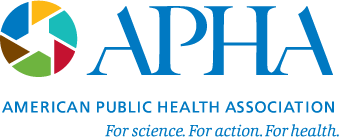Job Description
Position Summary
The Registered Nurse/ Dietician will perform professional nursing, consultation, and educational services for persons with diabetes, and provide community health education. The educator will also develop curriculum on health and act as a health care consultant by providing information on the management of diabetes for patients. Collaborate with other health care team members in information exchange for planning and developing appropriate patient care.
Principal Responsibilities and Tasks
1. The following statements are intended to describe the general nature and level of work performed by people assigned to this classification. They are not to be construed as an exhaustive list of all job duties performed by personnel so classified.
2. Coordinates and manages the work of professional educators engaged in educating and counseling patients with diabetes and their families including the assessment of physical, psychosocial, and economic needs and the development of comprehensive and across-discipline care plans.
3. Work with Primary Care Providers to deliver evidence-based, patient-centered care and effectively provide chronic disease self-management support.
4. Provide individualized nutrition counseling for diabetic or prediabetes patients, utilizing a multidisciplinary approach with a Registered Dietician to provide medical nutrition therapy (MNT)
5. Maintain and update education materials and keeping current with operational guidelines of monitoring devices and glycemic medication delivery systems.
6. Educates, promotes, enforces and supports the audit of quality and safety assurance standards. -
7. Makes presentations to public and private groups to promote the program.
8. Oversees and participates in the preparation of program activities and related reports.
Customer Service:
1. Greets customers in courteous, friendly, respectful and professional manner at all times, including maintaining eye contact when appropriate.
2. Follows communication protocols to both internal and external customers, including introducing him/herself with job title and experience, asking open ended questions, such as "How may I be of help to you?" using the customer's name as soon as it is learned.
3. Responds promptly and appropriately to customer questions/concerns/complaints and attempts immediate resolution.
4. Keeps customer's information confidential, including public places such as elevators or the cafeteria.
5. Provides assistance and offers help immediately, including finding someone else to meet the request, if unable to do so him/herself. Introduce other staff to customers when a hand-off occurs and explain that the person will provide excellent service.
6. Demonstrates commitment to excellent service recovery when a customer's expectations have not been met.
Commitment to Co-Workers:
1. Offers assistance to colleagues and other departments when needed.
2. Takes responsibility for solving problems regardless of origin; completes assignments, and respects deadlines.
3. Resolves conflict directly with colleagues and seeks assistance from others if the issue cannot be resolved. Refrains from criticism in public.
4. Mindful and respectful of others' time and schedules. Attends meetings on time and communicates any absences.
5. Provides co-workers with a status report for continuity of workflow when planning to be out of the office, off the unit, or away from the department
Communication Etiquette
1. Respectful, courteous and professional in all forms of communication and follows facility's service communication protocol in all interactions.
2. Refrains from use of personal cell phone in patient care areas and keeps usage to a minimum at all other times while on duty.
3. Does not text or use e-mail during meetings (except for exigent or emergency situations).
4. Limits use of business cell phone during meetings (remain on vibrate and/or calls go to voicemail).
5. Makes every effort to answer telephone calls within three rings, introducing him/her, department and title (if appropriate). Asks permission before placing the caller on hold or using the speakerphone. If caller is transferred, gives the caller the extension number of the person he or she is being transferred to. Offers further assistance to the caller upon completing the conversation.
6. Maintains an appropriate voicemail message and when away from the office has an out-of-office email message that is brief, current, and includes name and department and offers the caller options if possible.
7. Returns email and voicemail messages promptly but no later than within one business day (24 hours).
8. Always mindful of voice and language in public.
Self-Management
1. Reports to work appropriately groomed and in compliance with the Hospital's dress code. Wears identification badge at all times at chest level and facing outwards so identification is clearly visible.
2. Complete all assignments within deadlines or negotiates alternative actions and time frames in order to achieve desired outcomes.
3. Completes mandatory, annual education and competency requirements.
4. Follows DHS safety, infection control and employee health standards.
5. Demonstrates responsibility for personal growth, development and professional knowledge and competency.
6. Adhere to all DHS and department policies and procedures, including Code of Conduct and professional behavior standards. Does not exceed Hospital guidelines in reference to attendance, punctuality, and use of sick and unplanned absences. Provides notification of absences, lateness and vacation requests according to department guidelines. Respects length of time for lunch and break times.
7. Reviews, signs, and adheres to DHS and/or departmental confidentiality statement.
Qualifications
Education and Experience
- Bachelor's Degree in Healthcare-related discipline is required.
- 2 years of experience in educating patients, specifically about diabetes.
Knowledge, Skills and Abilities
1. Thorough knowledge of the diabetic population, diabetes care services and educational programming.
2. Thorough knowledge of nursing and patient care principles and practices.
3. Excellent verbal and written communication skills and the ability to communicate with individuals of diverse cohorts make public presentation to groups of all sizes...
4. Ability to collect and analyze health and population data and prepare reports and presentations.
5. Ability to plan and supervise the work of professional subordinates.
Required Licensure, Certifications and Registrations
1. Professional/Technical
A. Licensure as a Registered Nurse or Dietitian in the State of Maryland
B. Certification as a Diabetic Educator (CDE) at hire or within one year of service.
2. Life Support Certification:
CRP



